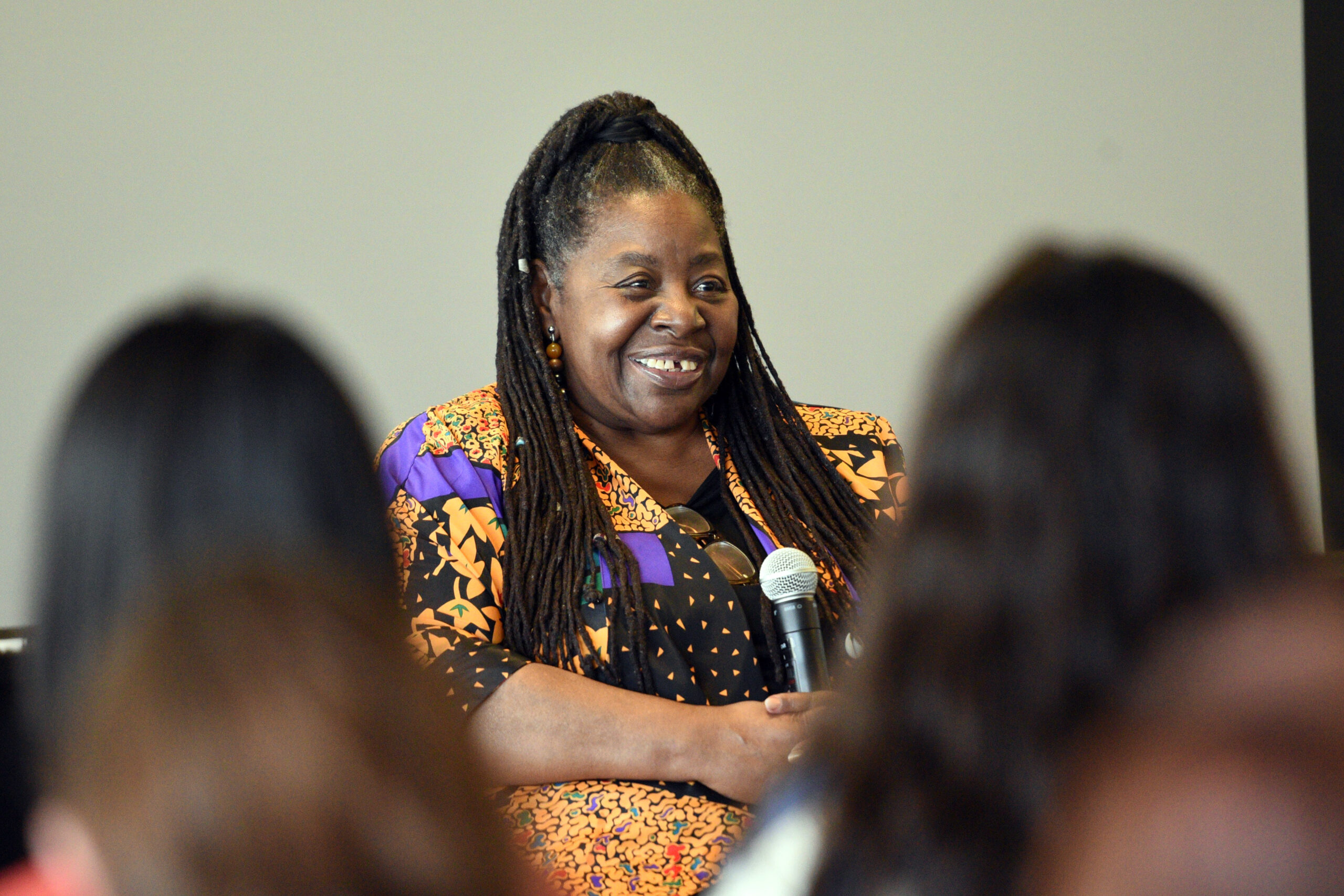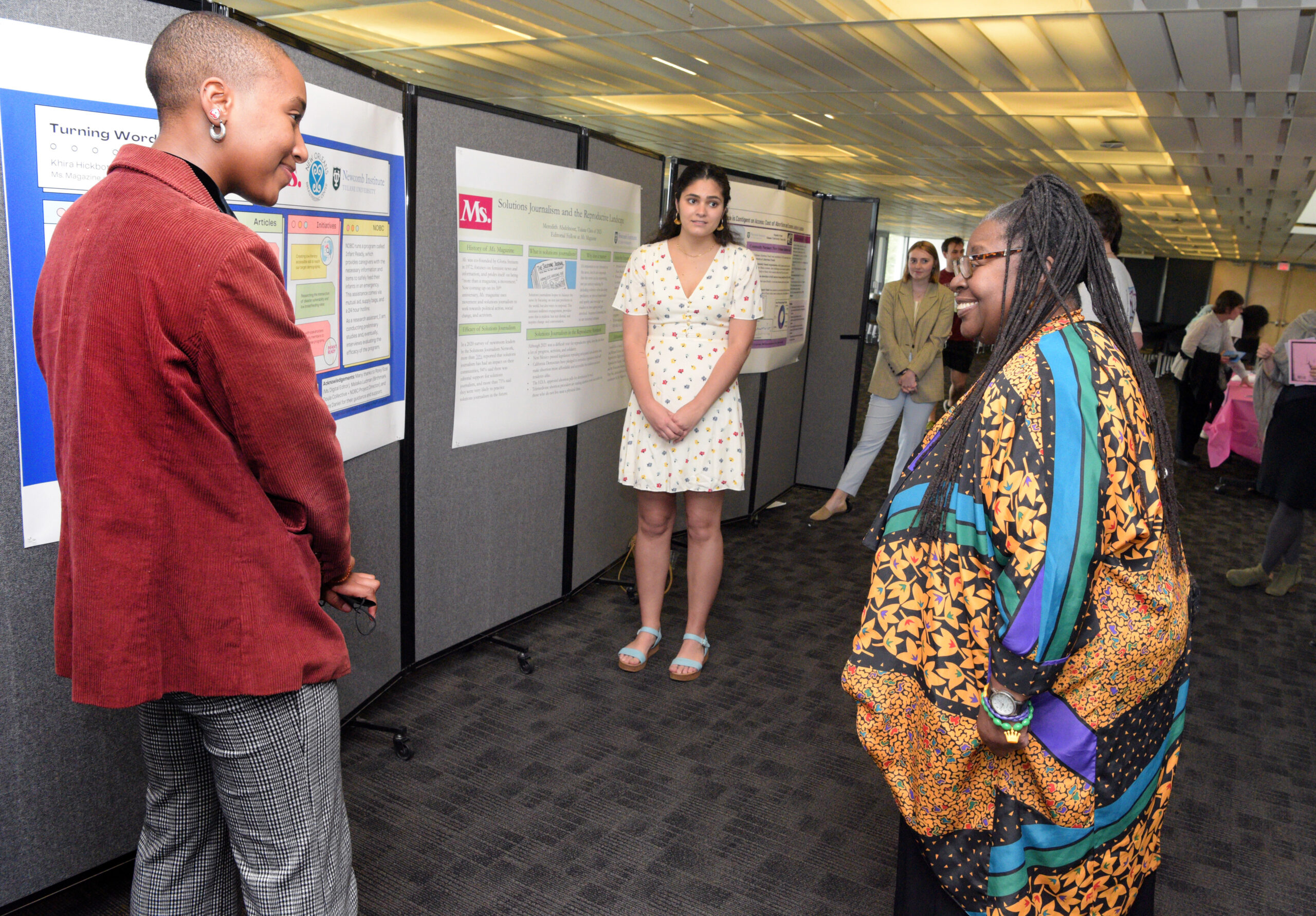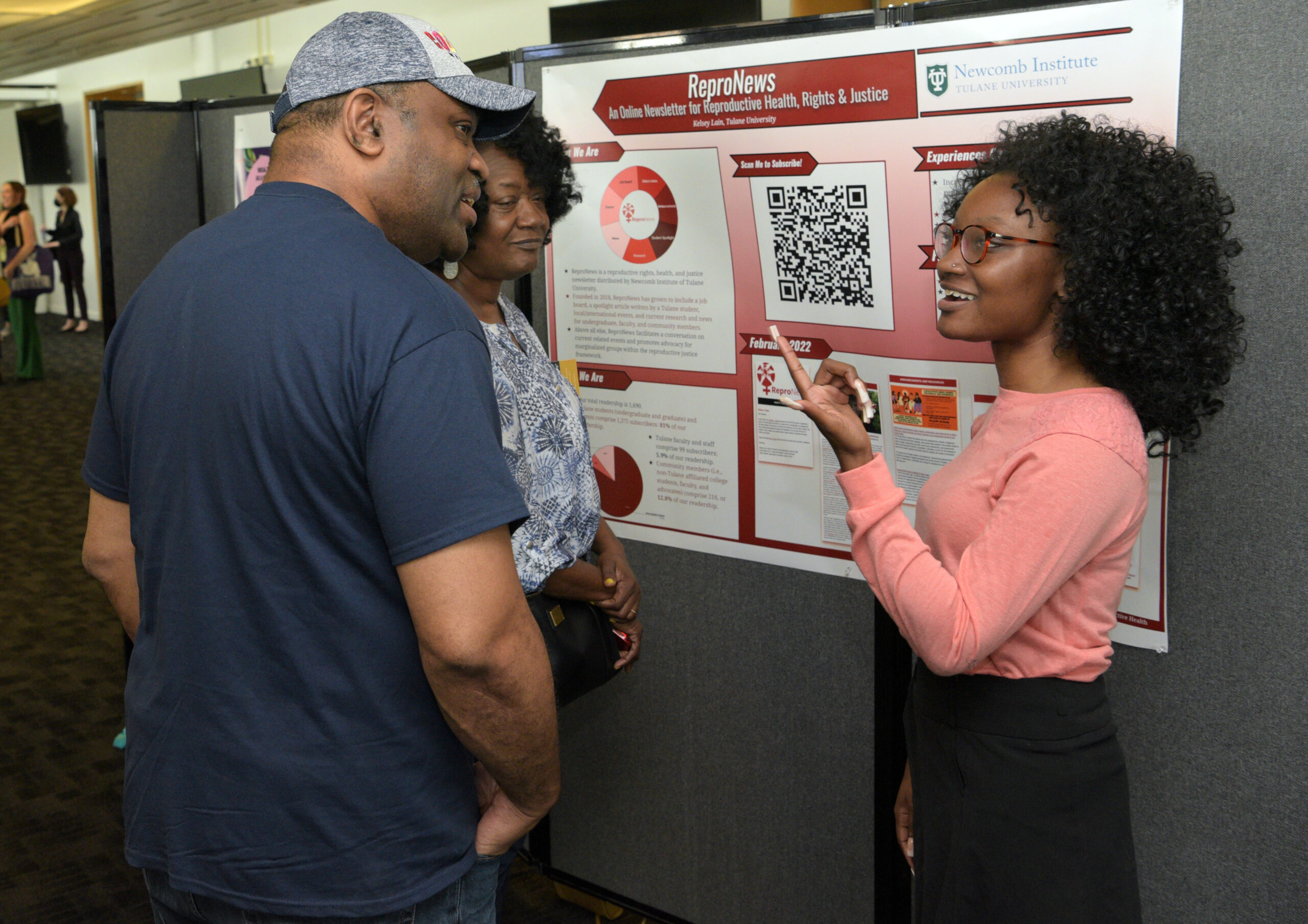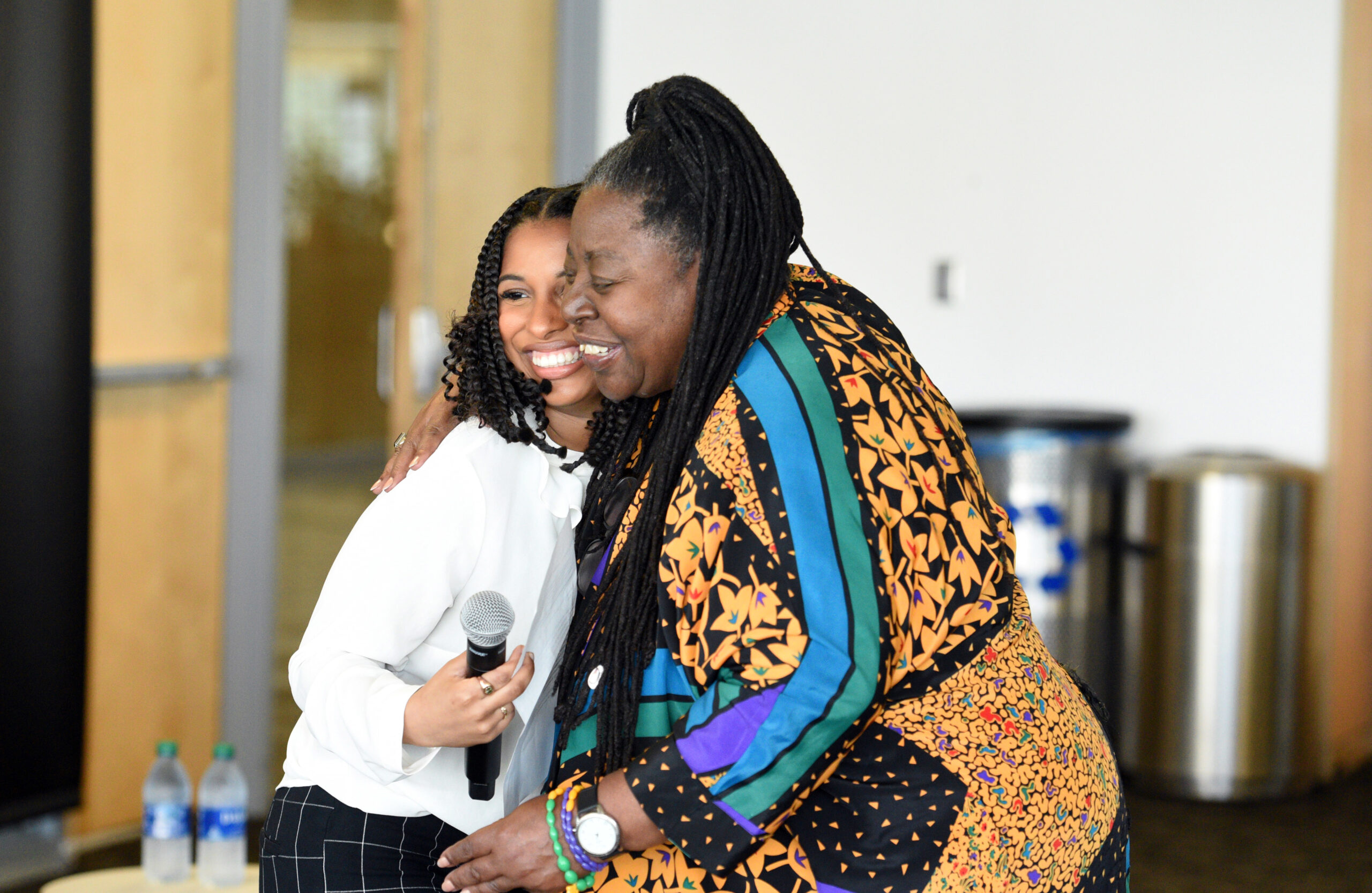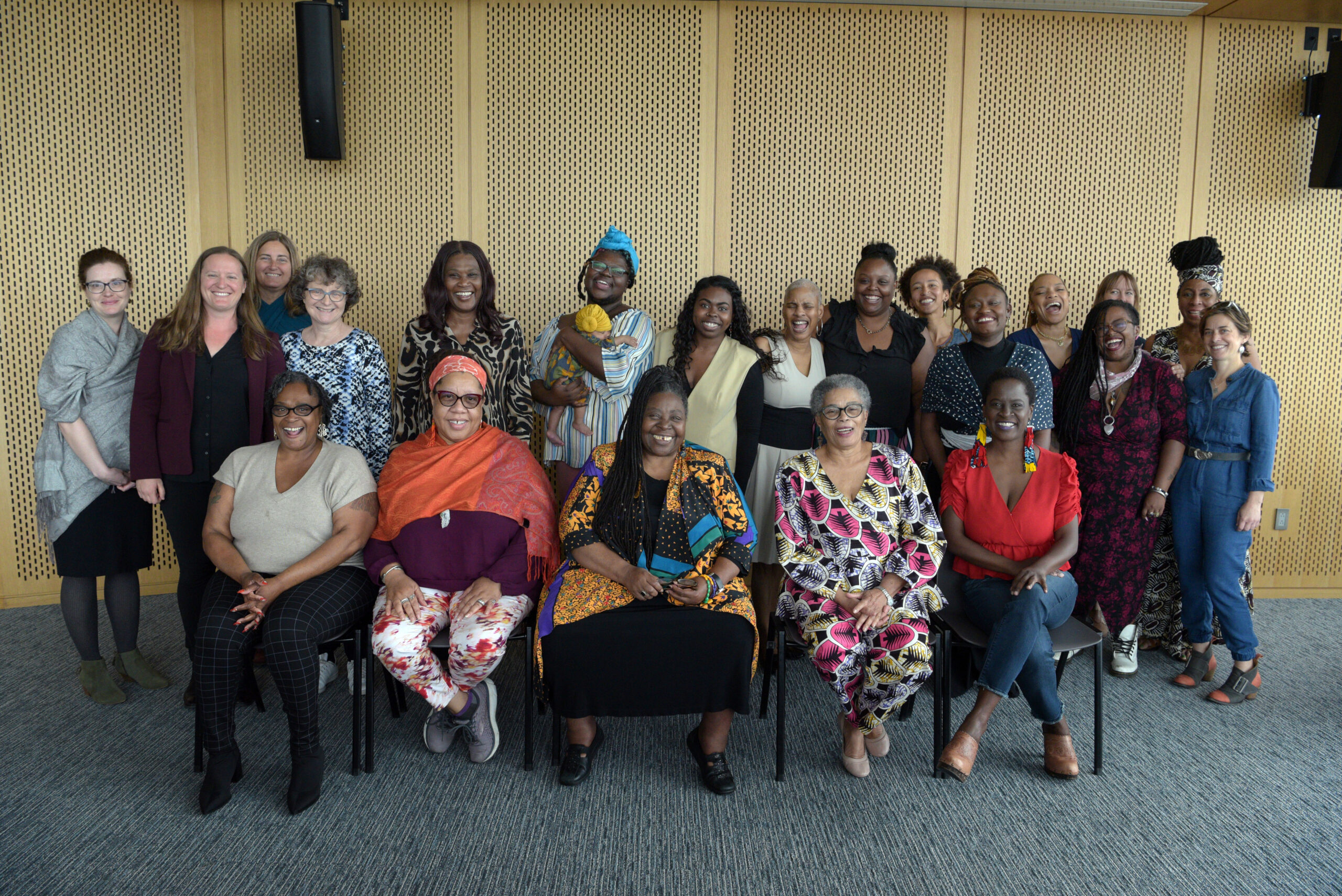By Dr. Clare Daniel
Conceiving Equity, featuring the 10th annual Roe v. Wade lecture by Loretta Ross and exhibit of poster presentations by Newcomb Institute’s Reproductive Rights and Reproductive Health interns
On March 6, 2022, Newcomb Institute was fortunate to host renowned reproductive justice scholar and activist Loretta Ross, as its tenth annual Roe v. Wade speaker. Featured recently in The New York Times for her forthcoming book Calling In Call Out Culture, Ross is an associate professor of the study of women and gender at Smith College, and one of the founding mothers of the reproductive justice framework.
The Roe v. Wade lecture is part of Conceiving Equity, a yearly event that showcases Newcomb’s Reproductive Rights and Reproductive Health (RRRH) interns’ work and includes advocacy activities created by our reproductive rights, health, and justice-related student organizations. After hosting the event virtually in 2021 due to COVID-19, over 120 students, faculty, staff, and community members were excited to convene in person.
During a reception before Ross’s lecture, attendees perused a poster gallery featuring the work of fifteen interns who were placed in paid positions at organizations and with faculty members who work on reproductive rights, health, and justice. Interns and student leaders were able to meet, share their work, and network with Ross, community leaders, and Tulane faculty during the reception.
In her lecture, Ross outlined the origins and history of the reproductive justice framework, defined by advocacy organization SisterSong as “the human right to maintain personal bodily autonomy, have children, not have children, and parent the children we have in safe and sustainable communities.”
Ross corrected a widely held misconception that reproductive justice was developed in response to the white-centric mainstream reproductive rights movement. Ross explained that although it is true that the mainstream movement failed to address the reproductive injustices faced by women of color and poor women, she and her colleagues founded reproductive justice as a response to their own experiences and needs, not as a corrective for white women.
Drawing on her time working with the National Organization for Women, the National Black Women’s Health Project, and as the first African American director of a rape crisis center, Ross discussed the importance of communicating across difference to combat white supremacy and reproductive oppression.
Newcomb Institute was also able to host a lunch with Ross and several New Orleans community leaders and researchers in reproductive justice. Some leaders in attendance, such as Deon Haywood, Executive Director of Women With a Vision, already knew and had worked closely with Ross, while others were able to meet and connect with her for the first time.
In sum, students were inspired to be in the presence of a legendary reproductive justice activist, while older leaders were heartened by the energy and thoughtful engagement of their younger peers. Connections were made that will surely further Newcomb Institute’s mission of educating students for a more gender-equitable future.

